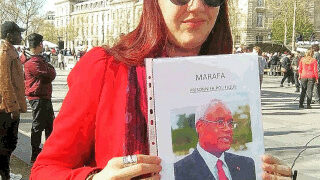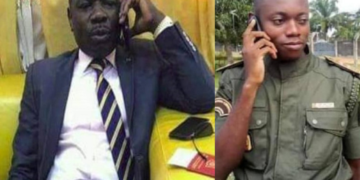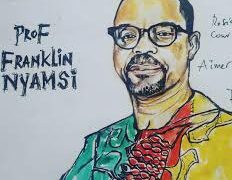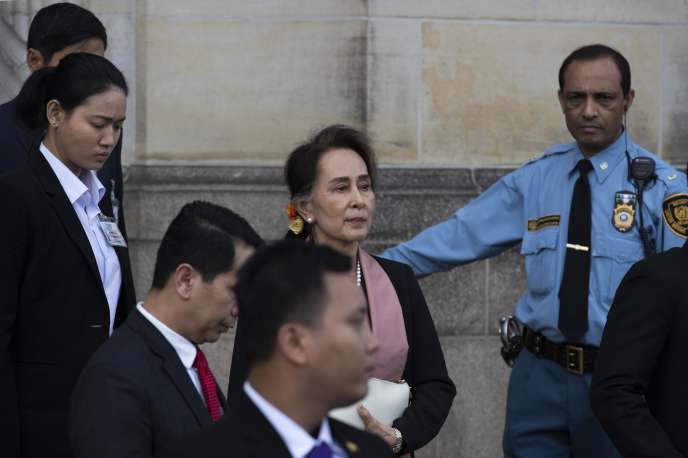L’ancienne icône de la paix Aung San Suu Kyi a assisté, mardi 10 décembre, aux appels de la Gambie, au nom du monde musulman, pour que la Birmanie « cesse le génocide » contre de la minorité musulmane rohingya, au premier jour d’audiences devant la Cour internationale de justice (CIJ).
Celle qui fut lauréate du prix Nobel de la paix en 1991 est à la tête de la délégation birmane devant la Cour qui siège à La Haye pour assurer elle-même la défense de son pays, à majorité bouddhiste, mis en cause pour les massacres et persécutions contre les Rohingyas.
Depuis août 2017, quelque 740 000 Rohingyas se sont réfugiés dans ce pays voisin de la Birmanie pour fuir les exactions de l’armée birmane et de milices bouddhistes, qualifiées de « génocide » par des enquêteurs de l’ONU.
« Tout ce que la Gambie demande, c’est que vous disiez [à la Birmanie] de mettre fin à ces tueries insensées, d’arrêter ces actes de barbarie et de cesser ce génocide contre son propre peuple », a plaidé le ministre gambien de la justice, Abubacarr Tambadou, devant les juges. La Gambie, mandatée par les 57 États membres de l’Organisation de la coopération islamique, estime que la Birmanie a violé la Convention pour la prévention et la répression du crime de génocide, un traité de droit international approuvé en 1948.
La CIJ, organe judiciaire principal des Nations unies, créé en 1946 pour régler les différends entre Etats membres, tient de premières audiences de mardi à jeudi dans ce dossier ultrasensible.
« Des gens tués, des femmes violées et des enfants brûlés vifs »
« Chaque jour à ne rien faire, ce sont plus de gens tués, plus de femmes violées et plus d’enfants brûlés vifs. Quel crime ont-ils commis ? Seulement celui d’être nés dans une religion différente », a dénoncé M. Tambadou, ancien procureur au Tribunal pénal international pour le Rwanda. « Des milliers de personnes ont déjà péri des conséquences directes des actes de génocide de la Birmanie et le nombre de réfugiés a atteint des proportions colossales », a-t-il martelé.
La Gambie demande à la CIJ des mesures d’urgence pour mettre fin aux « actes de génocide en cours » en Birmanie en attendant que soit rendu l’arrêt définitif sur le fond de l’affaire, ce qui pourrait prendre des années.
Vêtue d’une robe traditionnelle birmane, la cheffe de facto du gouvernement birman Aung San Suu Kyi a écouté les déclarations des avocats gambiens des victimes rohingyas, notamment celui d’une mère dont le fils d’un an a été battu à mort et celui d’une femme enceinte de huit mois qui a été piétinée et violée à plusieurs reprises.
Devant la Cour mardi matin, une cinquantaine de personnes étaient rassemblées pour défendre la cause de la Gambie, avec des banderoles affichant des messages tels que « Arrêtez l’attaque militaire birmane à l’encontre des Rohingyas ». Une petite fille brandissait une pancarte qualifiant Aung San Suu Kyi de « négationniste du génocide rohingya », a constaté un journaliste de l’Agence France-Presse (AFP).
Un autre groupe affichait quant à lui son soutien à l’ancienne icône de la paix. « Nous ne nions pas que le peuple rohingya ait souffert mais nous nions, comme Suu Kyi, qu’il y ait eu un génocide en Birmanie », a déclaré auprès de l’AFP Swe Swe Aye, une Birmane de 47 ans.
Large soutien en Birmanie
Encore citée aux côtés de grands noms comme Nelson Mandela et Mahatma Gandhi dans un passé pas si lointain, Suu Kyi, 74 ans, a vu son image ternie depuis qu’elle a pris la défense des généraux de l’armée birmane. Elle peut cependant se targuer d’un large soutien dans son pays. Mardi, quelque 2 000 personnes ont marché dans les rues de Rangoun, la capitale économique, et des dizaines de milliers d’autres ont défilé à Mandalay (nord).
Suu Kyi devrait présenter mercredi la défense de la Birmanie, devenant l’un des premiers dirigeants à s’adresser personnellement aux juges de la Cour. Celle-ci n’a établi qu’une seule fois qu’un génocide avait été commis : le massacre de 8 000 hommes et garçons musulmans en 1995 à Srebrenica, en Bosnie.
L’ancienne championne de la démocratie devrait faire valoir que la CIJ n’a pas compétence en l’affaire, que l’armée birmane ciblait des rebelles rohingyas, et que le pays est parfaitement capable de mener à bien ses propres enquêtes.
« Je demande que le monde nous rende justice », a déclaré Nur Karima, une réfugiée rohingya dont les frères et grands-parents ont été tués lors d’un massacre dans le village de Tula Toli en août 2017. « Je veux voir les condamnés être menés à la potence. Ils nous ont tués sans pitié », a témoigné Saida Khatun, une autre réfugiée de Tula Toli.
Les autorités birmanes maintiennent quant à elles que les militaires n’ont fait que réagir aux attaques de la rébellion rohingya, et qu’il n’y a eu ni nettoyage ethnique ni génocide.
[spacer style="1"]
Aung San Suu Kyi impassive as genocide hearing begins
World’s failure to act over Myanmar is ‘stain on collective conscience’, UN court told

Aung San Suu Kyi listens in court. She is expected to defend her country’s military on Wednesday. Photograph: Koen van Weel/ANP/AFP via Getty Images
Aung San Suu Kyi has sat impassively through graphic accounts of mass murder and rape perpetrated by Myanmar’s military at the start of a three-day hearing into allegations of genocide at the UN’s highest court.
“I stand before you to awaken the conscience of the world and arouse the voice of the international community,” Abubacarr Marie Tambadou, the Gambia’s attorney general and justice minister, said as he opened his country’s case against Myanmar at the international court of justice (ICJ) in The Hague. “In the words of Edmund Burke: ‘The only thing necessary for the triumph of evil is for good men to do nothing.’
“Another genocide is unfolding right before our eyes yet we do nothing to stop it,” he said. “This is a stain on our collective conscience. It’s not only the state of Myanmar that is on trial here, it’s our collective humanity that is being put on trial.”
Q&A
Who are the Rohingya and what happened to them in Myanmar?
Show
Before dawn on Tuesday, a long queue had formed outside the Peace Palace in the Dutch city to witness the first of three days of hearings that will focus attention on military clearance operations in 2017 against the Rohingya Muslim minority, 700,000 of whom were forced to flee across the border to neighbouring Bangladesh.

Aung San Suu Kyi, Myanmar’s state counsellor and effective prime minister, is expected to defend her country’s military on Wednesday by arguing that the operations were a legitimate counter-terrorism response to attacks by Rohingya militants.
Her decision to fly to the Netherlands has proven popular in Myanmar, a mainly Buddhist country that considers the Rohingya to be in the country illegally and denies them citizenship.
She has the status of official “agent” for Myanmar at the hearing, meaning she is the designated leader of her country’s delegation. On Tuesday, she sat in the front row, her hands resting on a table. As a list of atrocities was read out, she stared ahead at the raised bank of judges in front of her, her face expressionless. With accusations accumulating, her body appeared to tense and her rapidly blinking eyes glanced occasionally up towards the courtroom’s stained glass windows and chandeliers.

Demonstrators hold signs outside the international court of justice where Aung San Suu Kyi was attending the first of three days of hearings in The Hague. Photograph: Peter de Jong/AP
The case has been brought by the Gambia, a predominantly Muslim west African state that alleges Myanmar has breached the 1948 genocide convention enacted after the Holocaust.
The Gambia’s claim states that Myanmar has perpetrated “manifest” contraventions of the convention through the acts of its military, and continues to do so.
Those acts, the court was told, included “extrajudicial killings, rape or other forms of sexual violence, burning of homes and destruction of livestock … calculated to bring about a destruction of the Rohingya group in whole or in part”.
Detailing events at the village of Min Gyi, the Gambia’s lawyer Andrew Loewenstein drew on witness accounts recorded in a report by UN investigators, who estimated 750 people were killed there, including more than 100 children under the age of six.
“There were dead bodies on the floor; young boys from our village,” Loewenstein quoted from one survivor’s testimony to the UN fact-finding mission. “As we entered the house, the soldiers locked the door. One soldier raped me. He stabbed me in the back of my neck and in my abdomen. I was trying to save my baby, who was only 28 days old, but they threw him on the ground and he died.”
Aung San Suu Kyi’s alleged personal responsibility for the military’s clearance operations was raised by Paul Reichler, a US lawyer speaking on behalf of the Gambia. He showed the court a photograph of billboards that appeared across Myanmar in which she featured in front of three leading generals above the caption “We stand with you”.

A huge billboard depicting Aung San Su Kyi with three military ministers displayed along a main road in Karen state, Myanmar. Photograph: -/AFP via Getty Images
“This shows – it can only have been intended to show – that they are all in it together and that Myanmar has absolutely no intention of holding its emboldened military leadership to account,” Reichler said.
Prof Philippe Sands QC, the last lawyer to make submissions for the Gambia, told the ICJ that it was “the ultimate guardian of the [1948] genocide convention; it’s on you the eyes of the world are turned”.
Sands quoted from the UN fact-finding mission which said Aung San Suu Kyi had not used her “de facto power or moral authority to stem or prevent the unfolding events or to protect the civilian population”.
Among those in court were several Rohingya survivors who had flown in from Kutupalong refugee camp, the largest in Bangladesh outside Cox’s Bazar.
Hamida Khatun, Yousuf Ali and Hasina Begum were supported by the human rights organisation Legal Action Worldwide, which was founded by a former UN investigator of the violence, Antonia Mulvey.
“This is a momentous occasion. They have travelled a long way to be here,” Mulvey said outside the court. “They are seeking justice and this is the first and most important step.
“Aung San Suu Kyi did nothing to stop the killing. She could have asked for help from the international community at the time. And now, as the final insult, she’s defending the army’s behaviour in court.”

Rohingya survivors Hamida Khatun (far left), Yousuf Ali (second left) and Hasina Begum (far right), with Antonia Mulvey.
Khatun, 50, is a leader of the Shanti Mohila, a group of 400 Rohingya women in the Kutupalong camp. Her family and friends were murdered in the 2017 military operations.
Begum, 22, was attacked by soldiers; and Ali, 46, was beaten and sexually tortured by police in detention because he was accused of supporting the Arakan Rohingya Salvation Army, which the Myanmar army describes as a terrorist organisation.
Once internationally feted as a human rights champion, Aung San Suu Kyi has experienced a rapid fall from grace over what the UN has called her “complicity” in the military clearances. The contrast has been repeatedly drawn between her 1991 Nobel peace prize win and 15 years spent under house arrest, and her present position.
Among Rohingya protesters who gathered opposite the court was Rafique Mohammed, 33. His family fled Myanmar when he was a child and he now lives in Ireland. In 2012, he accompanied his niece to Dublin airport where she presented Aung San Suu Kyi, then at the height of her international renown, with flowers. “We are horribly disappointed in her,” he said. “My uncle was shot dead in 2017. We are here for justice.”
[ot-video type="youtube" url="https://www.youtube.com/watch?v=p5BNzf810Kc"]


















